Welcome to our blog dedicated to goat farming training programs in India! Discover the comprehensive and innovative approach to goat farming education aimed at empowering individuals with the skills and knowledge needed for success. Explore the diverse facets of sustainable goat farming, from practical techniques to industry insights and success stories.
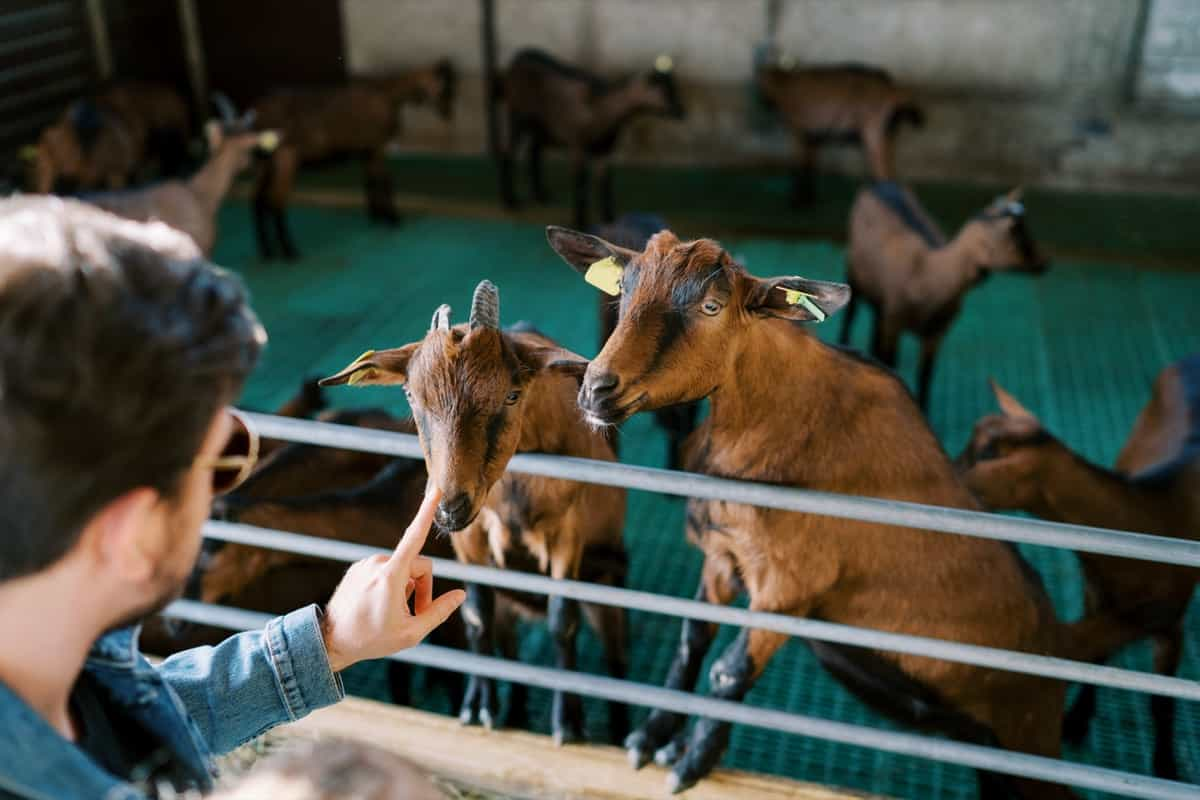
Introduction to Goat Farming
Goat farming has been an integral part of India’s rural economy for centuries, serving as a significant source of milk and meat. This article outlines the essential steps and considerations for starting a successful goat farm in India.
Step 1: Goat Breed Selection Choosing the right breed is crucial and depends on the intended purpose of the farm, whether for milk, meat, sale, or fiber. Popular breeds like Jamnapari, Black Bengal, Surti, and Boer are ideal choices, each offering unique advantages in terms of milk or meat production.
Step 2: Housing Facility Providing adequate shelter is essential to protect goats from harsh weather conditions. Depending on the farm size, a well-ventilated shed with protection from rain and sun is necessary. Proper spacing and ventilation ensure the goats’ health and well-being.
Step 3: Goat Nutrition A balanced diet is essential for healthy goats. Feeding them high-fiber, low-protein foods like hay, grains, pasture, and silage ensures proper growth and development. Feeding schedules should include three meals a day, supplemented with sufficient water intake.
Step 4: Goat Healthcare While some goat breeds are disease-resistant, regular healthcare is vital, especially during pregnancy. Pregnant does require specialized care from veterinarians for a smooth delivery. Newborn kids should be fed colostrum and provided with adequate milk for optimal growth.
Regional Training Centers Across India
Goat farming in India is a burgeoning sector with significant potential for growth and development. Recognizing this, a variety of training programs have been established across the country to educate and empower individuals interested in pursuing goat farming as a viable business. These programs offer comprehensive courses that cover every aspect of goat farming, from the basics of animal care to the intricacies of market linkage and entrepreneurship.
Courses Offered in Goat Farming
In India, a variety of institutions offer courses in goat farming, catering to different levels of experience and expertise. For instance, the Central Institute for Research on Goats in Mathura provides comprehensive training on breeding, feeding, health management, and marketing. Krishi Vigyan Kendras across the country also offer practical training in goat rearing. Additionally, online platforms like Rocket Skills and VillageofGoats provide accessible courses, including video lectures and community support, to help aspiring goat farmers establish and grow their businesses.
In case you missed it: How to Start Goat Farming in Mexico: Key Rules, Business Plant, Setup Cost, Profit, and Requirements
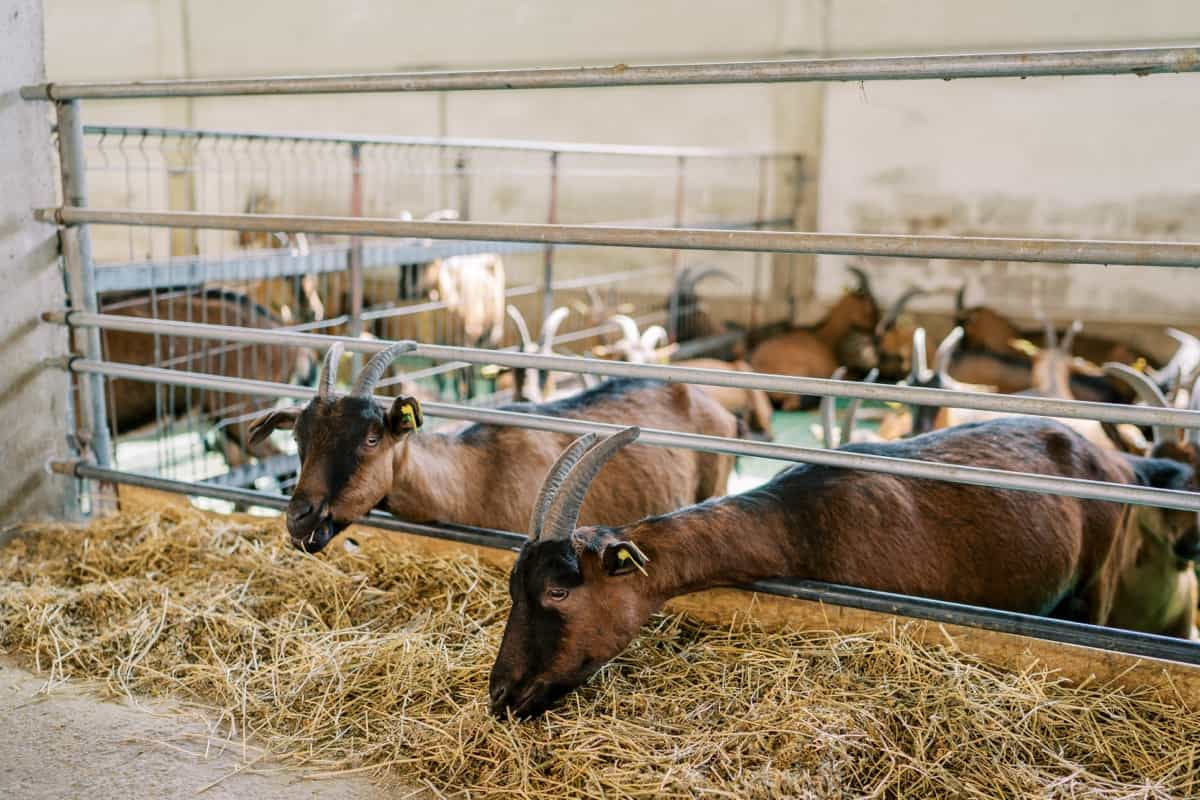
Eligibility Criteria for Trainees & Curriculum Overview
Eligibility criteria for these training programs vary, but they generally require a keen interest in agriculture and animal husbandry. Some programs may also require educational qualifications or experience in related fields. The curriculum typically includes topics such as breed selection, feeding and nutrition, health management, housing design, and financial planning. Trainees also get the opportunity to engage in hands-on sessions where they can apply their knowledge in real-world settings.
Hands-On Training Sessions
Krishi Vigyan Kendras (KVKs) and other institutions across India provide hands-on training sessions on scientific goat-rearing practices, disease management, and improved farming techniques.
Expert Instructors and Their Credentials
The training programs are conducted by expert instructors with significant experience and expertise in the field of goat farming. For example, Deepak Patidar, who has been active in goat farming for over 20 years, offers training courses through Rocket Skills. His credentials include establishing Goatwala Farm in the village of Sundrel based on an intensive type of goat farming, with over 500 goats of different varieties. He has also served in prestigious engagements, such as the Vice President of the Goat and Sheep Farmer Welfare Association as a Board Member at Nanaji Deshmukh Veterinary University Jabalpur MP.
Training Duration and Schedule
The duration and schedule of the training programs may vary depending on the provider. For example, the Central Institute for Research on Goats (CIRG) organizes national and international training programs of various kinds. These programs may range from regular activities for farmers to commercial lines and on request for others. An example is the five-day training program on “Hands-on training on value-added goat milk products processing” scheduled for March 4 – 8, 2024.
Facilities and Infrastructure
The Central Institute for Research on Goats (CIRG) offers high-quality training facilities, and its faculty is highly educated and experienced. Additionally, the institute provides consultancy services on the establishment and management of commercial goat farms on a payment basis. These programs provide essential equipment such as shelters, fencing, feeding troughs, watering systems, milking equipment, and health and care supplies.
In case you missed it: How to Start Profitable Pygmy Goat Farming: Business Plan and Requirements
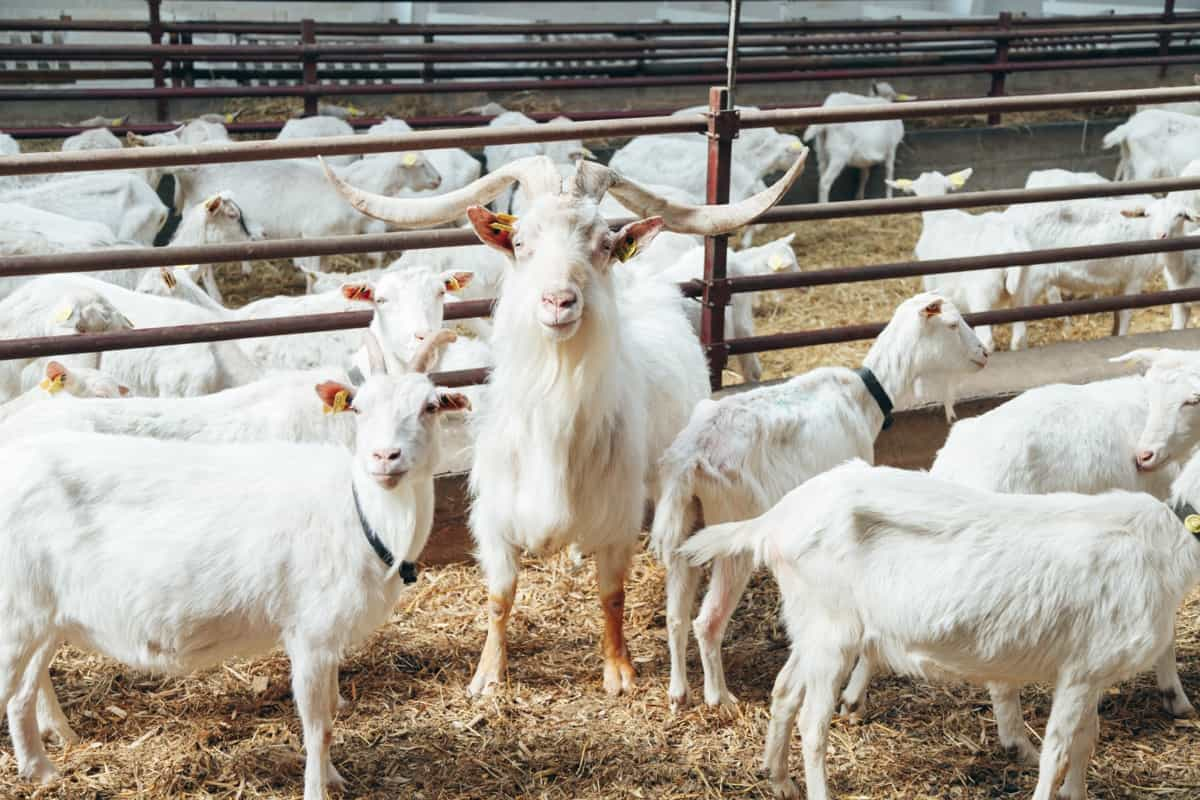
Additionally, institutions like agricultural universities, research centers, and private training centers offer beginner-friendly programs, with online resources and webinars available for remote learning. The National Research Centre on Meat in Hyderabad offers courses on meat production and goat farming, like meat processing and value addition for goat products. Moreover, training facilities at these institutes are well-equipped, with highly educated and experienced faculty, ensuring a conducive learning environment for participants.
Certification and Qualifications Awarded
Upon completion of the training programs, participants may receive industry-recognized certificates. For example, Rocket Skills offers authentic certification authorized by the organization. Additionally, the potential for certification from MSME, Govt. of India is mentioned in the context of goat farming training.
Cost of Training Programs
The cost of goat farming training programs in India depends on the provider and the duration of the program. Some programs may be offered free of charge by government institutions and agricultural universities, while others, especially those offered by private training centers, may have a fee associated with them.
For example, Rocket Skills offers a goat farming training course with a fee for enrollment, which includes 10+ hours of video lectures curated by an industry expert. The Central Institute for Research on Goats (CIRG) also offers training programs. While specific cost details are not readily available, the institute provides consultancy services on the establishment and management of commercial goat farms on a payment basis, indicating potential costs associated with their programs.
Scholarships and Financial Aid Options
Scholarships and financial aid options for goat farming training programs in India may be available through various channels. While specific scholarships directly related to goat farming training are not explicitly mentioned in the search results, it’s common for agricultural training programs to have scholarship opportunities for participants.
In case you missed it: From Expenses to Earnings: A Comprehensive Goat Farming Cost and Profitability Analysis
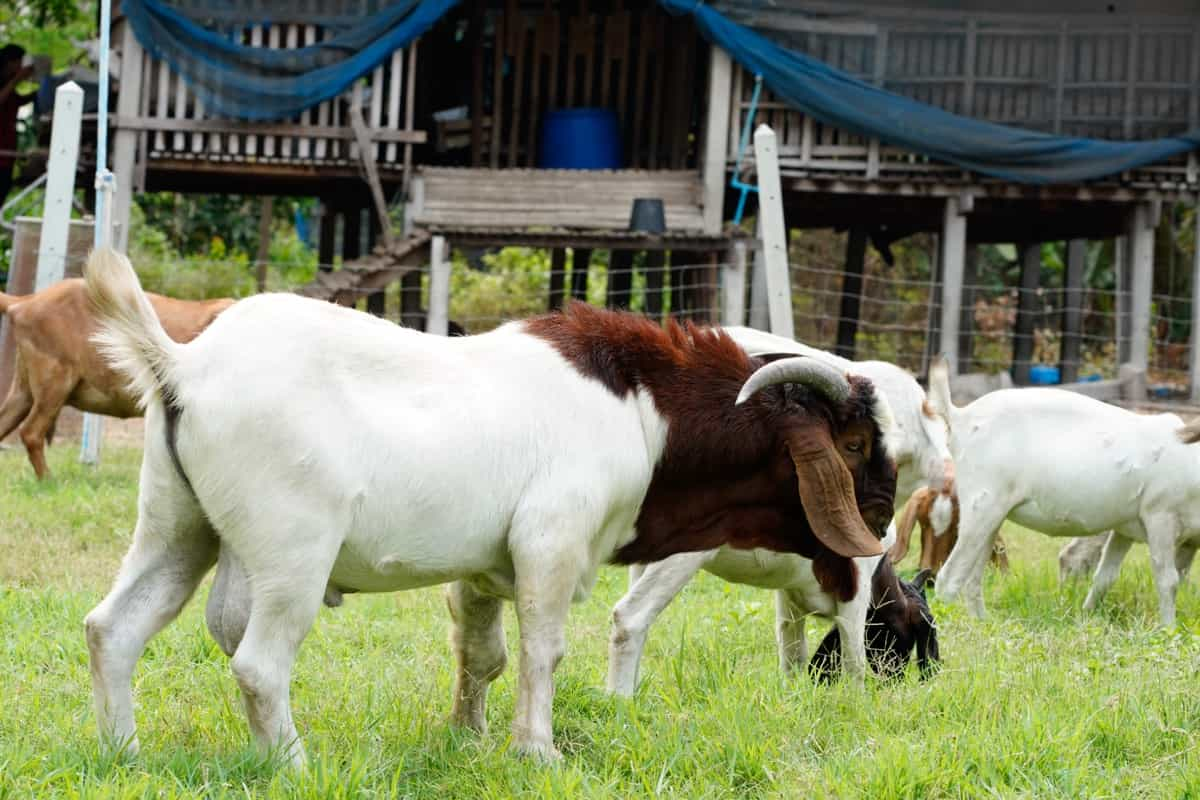
The National Bank for Agriculture and Rural Development provides loans and subsidies for goat farming, while state and central government schemes offer financial support. Additionally, the National Scheduled Castes Finance and Development Corporation (NSFDC) covers course fees and provides stipends for selected candidates undergoing goat farming training. These initiatives aim to empower individuals, especially those from marginalized communities, to pursue goat farming as a sustainable livelihood.
Success Stories of Alumni
Mr. Chandu’s Profitable Goat Farming: Mr. Chandu’s success story highlights the profitability of goat farming in India. His adoption of intensive, semi-intensive, and extensive rearing systems, along with strategic feed management using Hedge Lucernes and Super Napier, led to a significant profit of 5 lakh rupees from his goat farm. This success story underscores the potential for substantial returns and the diverse revenue streams associated with goat farming, including meat, milk, fiber, and skin.
Reddy’s Sustainable Farming Techniques: Reddy’s farming techniques in Andhra Pradesh resulted in healthy goats expanded markets. This demonstrates the positive impact of knowledge, dedication, and innovation in empowering Indian farmers and contributing significantly to the country’s agricultural landscape.
Deepak Patidar’s Expertise: Deepak Patidar’s venture into the world of goat farming and his extensive experience of over 20 years in intensive goat farming, with over 500 goats of different varieties, exemplifies the potential for success in the industry. His involvement in prestigious engagements and his role in the Goat and Sheep Farmer Welfare Association and Nanaji Deshmukh Veterinary University further highlight the impact of training and expertise in goat farming.
Chandra Rait’s Marginal Farming Success: Chandra Rait’s success story showcases the transformative impact of goat farming on a marginal farmer below the poverty line. Through the SGSY Goatry scheme, he was able to significantly increase his goat population and establish a successful goat farm, contributing to his economic upliftment.
Linkages to Goat Markets and Buyers
eNAM Online Trading Platforms: The eNAM (electronic National Agriculture Market) online trading platforms provide a platform for agricultural commodity trading, including livestock products. These platforms aim to reduce transaction costs and enhance bargaining power for small farm linkages to markets. They play a role in connecting farmers directly with buyers, bypassing traditional marketing channels, and ensuring the supply of quality agricultural goods at a stipulated time
Market Linkage Startups: Startups and initiatives focused on market linkages are playing a significant role in liberalizing India’s farm economy. These initiatives aim to streamline the supply chain, ensure better price discovery, and facilitate connections between farmers and various markets, including processors, local supermarkets, and international markets. They are also exploring tech-based solutions for enhancing market linkages
GOAT Marketplace for Sneakerheads: While not directly related to goat farming, the GOAT marketplace serves as an example of a platform that acts as a marketplace between buyers and sellers, verifying the authenticity of products and offering services to facilitate transactions. This example illustrates the potential for specialized market platforms to facilitate transactions for buyers and sellers in specific industries.
In case you missed it: Protecting Your Flock: A Comprehensive Guide to Vaccination Schedule for Goats and Sheep
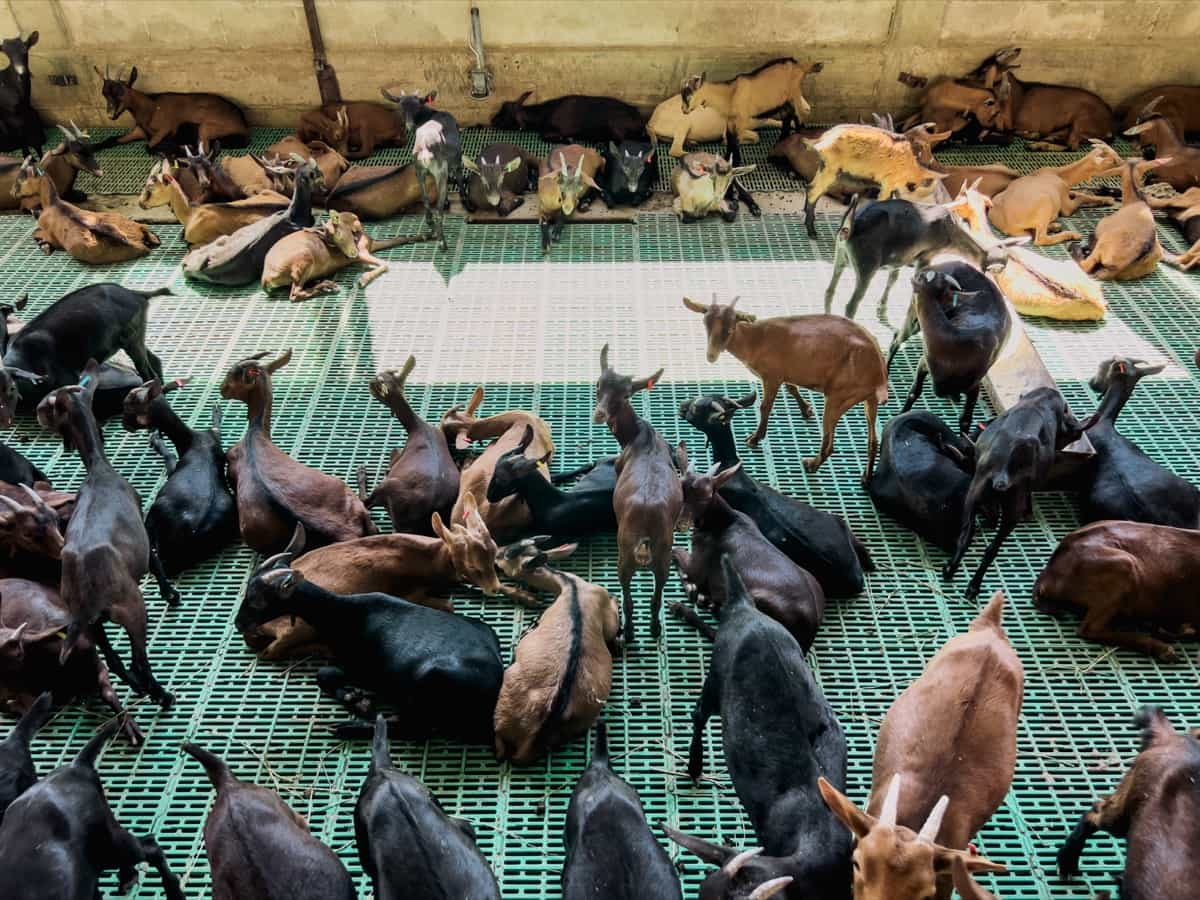
Government and NGO Partnerships
Government Institutions and Agricultural Universities: Various government institutions, agricultural universities, and research institutes collaborate to offer exceptional training programs aimed at equipping individuals with the necessary skills for successful goat farming. For instance, the Central Institute for Research on Goats in Mathura leads goat farming research and conducts training programs covering breeding, feeding, and other essential aspects of goat farming. These programs are part of a concerted approach adopted by the institute to demonstrate and implement improved technologies at the farmers’ doorstep.
Institute for Industrial Development (IID): The Institute for Industrial Development (IID) operates as an incubator with the Govt of India, Ministry of Micro, Small & Medium Enterprises, and the Department of Startup, Government of Uttar Pradesh. This partnership demonstrates the involvement of government bodies in supporting and promoting goat farming business plans integral to rural development programs.
Krishi Vigyan Kendras (KVKs): KVKs are sanctioned to agricultural universities, ICAR institutes, related government departments, and non-government organizations (NGOs) working in agriculture. These centers conduct training in goat farming, benefiting farmers and entrepreneurs, and are 100% financed by the Government of India. This highlights the partnership between government bodies and NGOs in providing training and support for goat farming.
The Goat Trust: The Goat Trust is a professional resource organization working on the development of small livestock farming systems, technologies, and market development through collaboration and networking with various stakeholders. This organization promotes small livestock-based livelihoods and works in partnership with various stakeholders, including government bodies and NGOs, to achieve its objectives.
Centre for Agriculture and Rural Development: This premier non-government organization, established and registered under the Societies Registration Act 1860, plays a vital role in the national efforts of developing India through agricultural transformation. The organization is involved in offering commercial goat farming training programs, showcasing the partnership between NGOs and the agricultural sector.
Goat Farming Government Schemes
The National Livestock Mission (NLM) provides financial assistance to farmers and goat farming businesses, including up to 50% subsidies and low-interest loans for establishing farms. The Rashtriya Krishi Vikas Yojana (RKVY) offers financial aid for goat distribution, shelter construction, food provisions, and training programs.
In case you missed it: Top 20 Goat and Sheep Weight Gain Supplements: Best Sheep and Goat Weight Gain Formulas
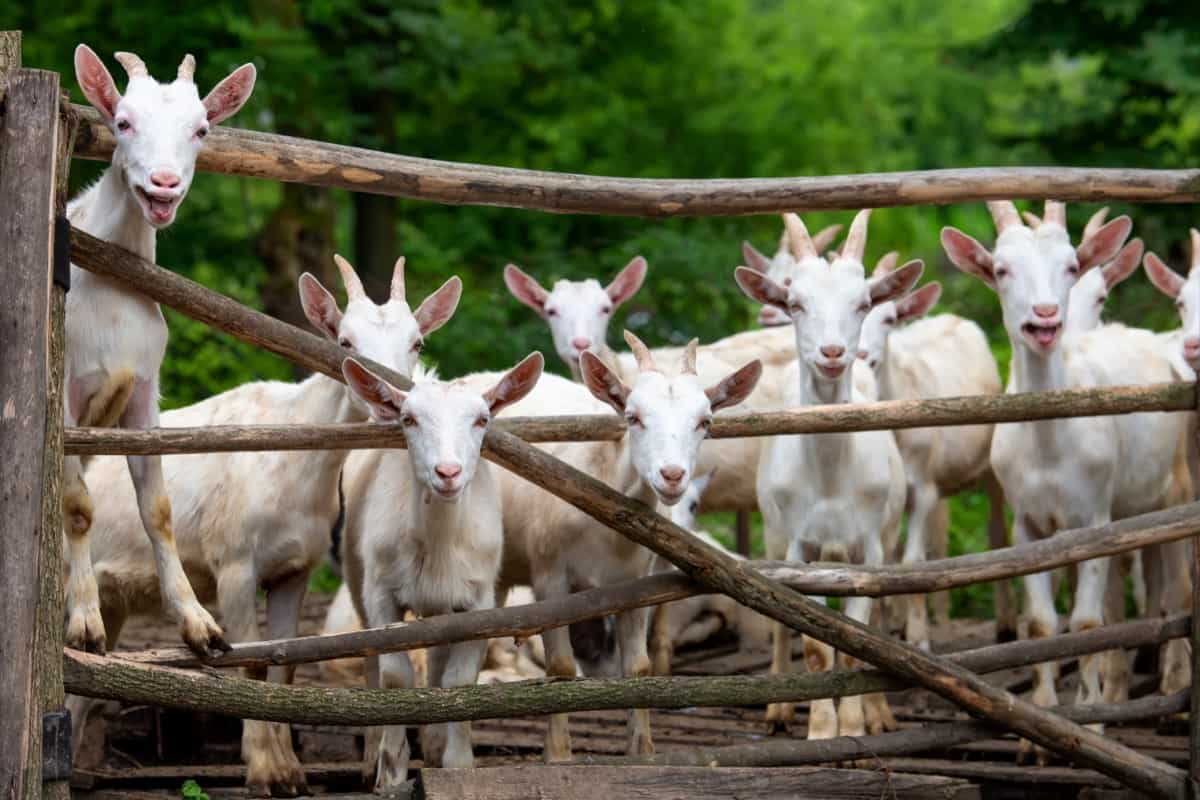
The Central Institute for Research on Goats (CIRG) offers comprehensive training programs in goat farming at its Mathura location, covering all aspects of the industry. Krishna Vigyan Kendra (KVK) across India provides training in breed selection, health care, and other essential aspects, lasting 3 to 5 days.
Goat farming training programs in India offer a gateway to sustainable livelihoods and economic empowerment. With comprehensive support, industry-recognized certifications, and practical resources, these programs pave the way for individuals to thrive in the dynamic landscape of goat farming.

- Goat Farming Training Programs in India: A Beginner’s Guide
- Types of Pesticides Used in Agriculture: A Beginner’s Guide
- Economical Aquaculture: A Guide to Low-Budget Fish Farming
- 15 Common Planting Errors That Can Doom Your Fruit Trees
- How to Make Houseplants Bushy: Effective Tips and Ideas
- Innovative Strategies for Boosting Coconut Pollination and Yield
- Pollination Strategies for Maximum Pumpkin Yield
- The Complete Guide to Chicken Fattening: Strategies for Maximum Growth
- Natural Solutions for Tulip Problems: 100% Effective Remedies for Leaf and Bulb-Related Issues
- Revolutionizing Citrus Preservation: Towards a Healthier, Greener Future
- Natural Solutions for Peony Leaf and Flower Problems: 100% Effective Remedies
- Maximizing Profits with Avocado Contract Farming in India: A Comprehensive Guide
- Natural Solutions for Hydrangea Problems: 100% Effective Remedies for Leaf and Flowers
- The Ultimate Guide to Choosing the Perfect Foliage Friend: Bringing Life Indoors
- From Sunlight to Sustainability: 15 Ways to Use Solar Technology in Agriculture
- The Ultimate Guide to Dong Tao Chicken: Exploring from History to Raising
- The Eco-Friendly Makeover: How to Convert Your Unused Swimming Pool into a Fish Pond
- Mastering the Art of Delaware Chicken Farming: Essentials for Healthy Backyard Flocks
- 20 Best Homemade Fertilizers for Money Plant: DIY Recipes and Application Methods
- How to Craft a Comprehensive Free-Range Chicken Farming Business Plan
- Brighten Your Flock: Raising Easter Egger Chickens for Beauty and Bounty
- How to Optimize Your Poultry Egg Farm Business Plan with These Strategies
- Subsidy for Spirulina Cultivation: How Indian Government Schemes Encouraging Spirulina Farmers
- Ultimate Guide to Raising Dominique Chickens: Breeding, Feeding, Egg-Production, and Care
- Mastering the Art of Raising Jersey Giant Chickens: Care, Feeding, and More
- Ultimate Guide to Raising Legbar Chickens: Breeding, Farming Practices, Diet, Egg-Production
- How to Raise Welsummer Chickens: A Comprehensive Guide for Beginners
- How to Protect Indoor Plants in Winter: A Comprehensive Guide
- Ultimate Guide to Grow Bag Gardening: Tips, Tricks, and Planting Ideas for Urban Gardeners
- Guide to Lotus Cultivation: How to Propagate, Plant, Grow, Care, Cost, and Profit
- Agriculture Drone Subsidy Scheme: Government Kisan Subsidy, License, and How to Apply Online
- Ultimate Guide to Raising Araucana Chickens: Breed Profile, Farming Economics, Diet, and Care
- Bringing Hydroponics to Classroom: Importance, Benefits of Learning for School Students
- Ultimate Guide to Raising Polish Chickens: Breed Profile, Farming Economics, Diet, and Care
- Ultimate Guide to Raising Australorp Chickens: Profile, Farming Economics, Egg Production, Diet, and Care
- Silkie Chicken Farming: Raising Practices, Varieties, Egg Production, Diet, and Care




















